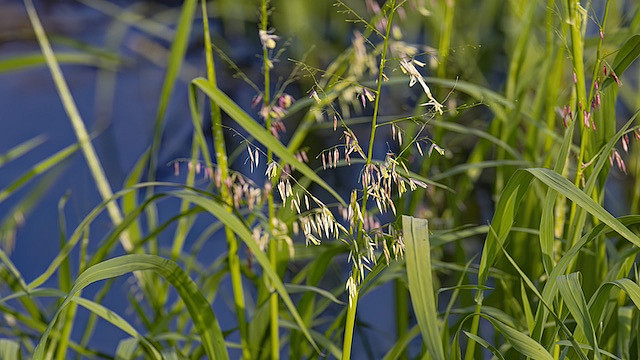
The Rights of Nature vs. Human Rights?
Struggles for environmental, racial, and gender justice in Colombia, Ecuador, and the U.S.
The right to nature and its benefits to human beings are widely recognized. Yet, following the lead of Ecuador, several countries have begun to recognize rights of nature. While a potentially powerful legal framework to protect the environment, it also raises a host of other possibilities, including the potential intersectional alignments and conflicts between rights of nature and human rights, including women’s, Indigenous and Afrodescendant rights, and the rights of rural communities.
Join us for two panel discussions with leading scholars, lawyers, and activists. How have the “rights of nature” been a legal tool used to advance not just the protection of the environment, but also Indigenous and Afrodescendant rights in Ecuador, Colombia, and the United States? What lessons and strategies can we learn from Afrodescendant, Indigenous, and women’s rights activists leading environmental struggles?
This event will be in English and Spanish, with simultaneous translation.
Register to Attend
Can’t Attend In Person? Check Out the Livestream for the event
Cowles Auditorium, Humphrey School of Public Affairs, 301 19th Ave. S
8:30-9 am Coffee and refreshments
9:00-10:45 Law and the Rights of Nature Across the Americas
What constitutes the rights of nature? What are the advantages and the pitfalls of using the rights of nature to advance environmental protection? What happens when the rights of nature and the rights of humans collide? In this panel, lawyers that have used the rights of nature to protect not just nature but also Indigenous and Afrodescendant claims in Ecuador, Colombia, and the United States, weigh in on these questions.
Yaku Pérez (Ecuador) Lawyer, indigenous leader (Kichwa Kañari), and former Presidential Candidate. Litigated many of the key rights of nature cases in Ecuador, including Rio Blanco (2019); Kimsakocha (2021; 2023); the Collay protected forests (2019); the case of the Sinangoe Cofanes community, and others. Judge of the International Tribunal for the Rights of Nature, author. Imprisoned for defending water and the rights of nature.
Viviana Tacha (Colombia) Lawyer, Director of Siembra - the Socio-legal Center for Territorial Defense. SIEMBRA served as legal representatives in the Atrato River case, in which the River was declared a subject to rights by the Colombian Constitutional Court. SIEMBRA collaborates with the Guardians of the Atrato River. The Court named the Guardians the legal representatives of the Atrato.
Frank Bibeau (USA) Member and Tribal Lawyer for the White Earth Band of Anishinaabe. Executive Director of the 1855 Treaty Authority. Secured the Rights of Wild Rice for the White Earth Band of Ojibwe and represented Wild Rice in a case against the Minnesota Department of Natural Resources for allowing the construction of the Line 3 oil pipeline.
Alex Huneeus (USA) Evjue Bascom Professor of Law and Director, Center for Law, Society, and Justice, University of Wisconsin - Madison.
Moderated by Amanda Lyons, Executive Director of the Human Rights Center, Law School
11:00-12:30 Women Rewriting the Laws of Nature
Women, including Indigenous and Afrodescendant women, have been at the forefront of struggles to make the rights of nature a reality. What are the challenges of being a women activist or advocate in this space? How useful has the concept of the rights of nature been for the struggles they have led? How do these activists and advocates reconcile the rights approach – stemming from an individualist framework – with the often more collectivist worldviews of their own Indigenous, Afrodescendant, or feminist communities?
Antonella Calle (Ecuador). Defender of the rights of nature, human rights and animals for more than thirteen years in Ecuador. Member of the collectives that ed the successful mobilization to protect Ecuador’s Yasuní National Park – an UNESCO Biosphere Reserve – from oil exploitation.
Casey Camp-Horinek (USA) Councilwoman and Hereditary Drumkeeper of the Women’s Scalp Dance Society of the Ponca Nation of Oklahoma. Led the Ponca Nation to adopt the RIghts of Nature Statute, and a moratorium on fracking on tribal lands. Also instrumental in drafting the International Indigenous Women’s Treaty protecting the Rights of Nature.
Judge Belkis Izquierdo (Colombia) Indigenous woman from the Ik u people of Colombia. Magistrate of the Chamber for the Recognition of Truth and Responsibility and Determination of Facts and Conducts of the Special Jurisdiction for Peace in Colombia, and current vice-president of the same entity. Works at the intersection of gender, ethnicity, and Territory.
Moderated by Dr. Christina Ewig, Director of the Center on Women, Gender, and Public Policy.
Co-hosted by the Center on Women, Gender, and Public Policy; the Human Rights Center; and the Human Rights Initiative
Co-sponsored by the Department of American Indian Studies; Center for Science, Technology, and Environmental Policy; Center for Race, Indigeneity, Disability, Gender, and Sexuality Studies; Human Rights Program; Institute on the Environment; Interdisciplinary Center for the Study of Global Change; Women’s Center.